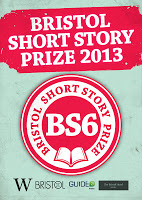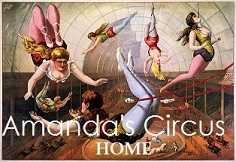Story on the Bristol Prize Shortlist
 Excellent news, I have a story on the Bristol Prize shortlist. It’s wonderful to be listed in such a prestigious competition and I’m thrilled that it is going to be published in the anthology later this year. The list is here: http://www.bristolprize.co.uk/news/127-2013-bssp-shortlist-announced.htmlHow exciting is that?
Excellent news, I have a story on the Bristol Prize shortlist. It’s wonderful to be listed in such a prestigious competition and I’m thrilled that it is going to be published in the anthology later this year. The list is here: http://www.bristolprize.co.uk/news/127-2013-bssp-shortlist-announced.htmlHow exciting is that?
For a post on the 2013 Anthology (now available) look here.
I’m particularly thrilled that this story is going to be published because it is part of my family’s history in a way. Not the actual events, I must be clear on that, but it’s about the Yorkshiremen who sailed the trawlers in the dangerous, unforgiving North Seas, they’re part of my family history. I had to do a great deal of research though, it wasn’t something that my mother wanted to talk about, all the men in her family worked on the trawlers and I think it was a life she was glad to escape in many ways. The women, of course, waited at home for the men to return from those terribly tough weeks at sea. And often they didn’t return.
I’m writing another of these family related stories, this time loosely connected to my father’s side. My grandmother was from the Welsh valleys, the mining communities and we have had a few miners in our family. Another dangerous job and one that is virtually non-existent in Wales nowadays, the industry was decimated in the eighties after the vicious Thatcher attack on the coal industry and the resultant miners’ strike. It was a terrible and extraordinarily dangerous life for the entire community. Think of the Aberfan disaster when the slag heap collapsed and killed over a hundred children at the Primary school. And down the mine there were the daily risks of tunnel collapses, maiming from the machinery, gas explosions, flooding. And the inevitable long term dangers of inhaling coal dust.
As far as writing the story goes, it is much more difficult than writing about the trawlermen. It is great writing about the sea, the mountainous waves, the smell and feel of the fish, the icebergs, the starry skies, the water, the swell, the rise and drop of the ship; writing about life down a mine, crammed into a four foot high tunnel for seven hours is a very different matter. But for many miners, it was a life they loved and would return to. Perhaps it is partly to do with community and camaraderie. The men had their social clubs, their rugby, the choir, the chapel etc etc. And of course, many men followed their fathers and grandfathers into the mines. It was what you did and it gave certainty and continuity to life. All that has gone. Now life is precarious in the Welsh valleys with unemployment rife, drug and alcohol addiction high amongst youngsters. They’re being told to travel abroad to find work. They’re being told to do as the eastern Europeans do. Of course it really isn’t the same. Mostly, eastern European youngsters are in the UK looking for a brighter future, but also in the UK their earnings are greater than at home. It certainly wouldn’t be the same if our youngsters went to Poland or Bulgaria or Slovakia to find work. It’s unlikely they would find any work there anyway.
It’s always difficult deciding which story to send to a competition. It’s a little easier with literary magazines because there are usually plenty of stories to read online and I can see if one of mine might fit or whether I might want to write one specifically for that particular magazine. Often editors will describes the type of thing they’re interested in, although some simply say that their interest is broad and that good writing, originality and excellent storytelling are what does it for them. This isn’t particularly helpful, though, is it? Images give some idea of what the magazine is about. I do my research, it’s worth it in the long run. I think the author biographies are often worth looking into too. If I find an author whose work I find interesting, with a little research I can sometimes find online litmags that might be interested in mine.
Competitions are a different matter. The stories that I’ve had shortlisted or longlisted have always been of a fairly conventional, straightforward kind. This may be because the impact of a conventional story is more immediate. The structure or surreality of another kind of story may be a little too much to take or too much work when the reader has an enormous list of stories to get through. Even so, I usually send a more experimental story along with the conventional one but they have never been listed. The exception is the Litro/Poland Bruno Schulz competition which I won. The reason for that is pretty obvious–the Schulz element meant that they were looking for something more rarefied. There are simply very few competitions like that. Although, having said that, another exception is the National Flash Fiction Day Anthology. In this case the story needed to be related to a specific work of art, in the widest sense. I only had one of those so I sent it. It was a conventional story. I was busy and didn’t have time to write one especially but luckily it got in. I wish though that I’d had the time to write one specifically for the anthology. ‘Scraps’, the NFFD anthology, is a really good read with many experimental stories. I missed my chance there but I’ll try again next year. Meanwhile, I’m absolutely thrilled that the Bristol Prize have picked this story and that it will be published. Fantastic news! Many thanks to them. I’ll find out if it has made it into the top three in October at their event in Bristol.
